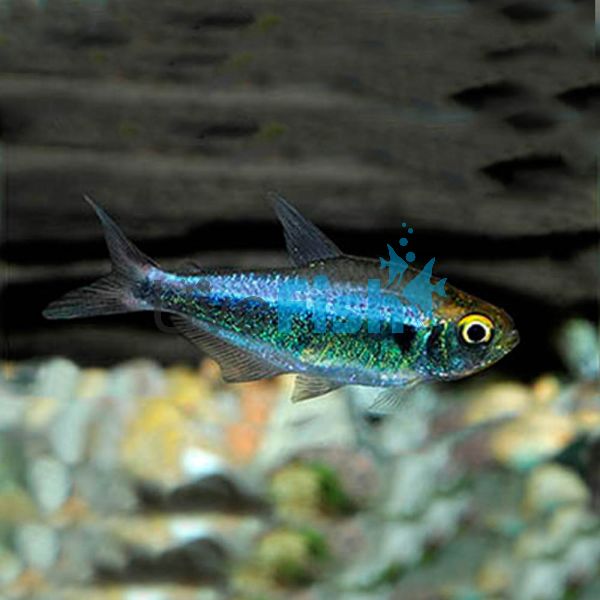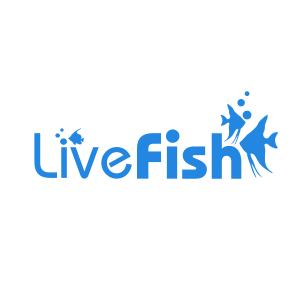Rio Metae Purple Tetra - 3cm
For the aquarists chasing a rarer and more stunning tetra species to add to a high-tech planted display or the perfect biotope aquarium, then the purple tetra would make for great consideration. These are not common fish in Australia by any means and their niche demand and lack of captive breeding in high numbers are why these fish tend to have an elevated price. They are however incredibly stunning fish a colour that isn’t that commonly seen in tetras or most aquarium fish for that matter.
Purple Tetra Rio Meta
For the aquarists chasing a rarer and more stunning tetra species to add to a high-tech planted display or the perfect biotope aquarium, then the purple tetra would make for great consideration. These are not common fish in Australia by any means and their niche demand and lack of captive breeding in high numbers are why these fish tend to have an elevated price. They are however incredibly stunning fish a colour that isn’t that commonly seen in tetras or most aquarium fish for that matter.
The most eye-catching feature about these small fish is their contrasting purple and jade green colour that essentially travels from head to tail. The iridescent colour is most prominent just after the gill plant and tends to remain mostly under the lateral line. The contrast of purple, blues, and greens along with the bright yellow eye is an array of colours that is never seen on naturally occurring fish. These are species that will contrast amazingly well against aquarium plants but will also shimmer in the tea-stained water of a blackwater aquarium. Since these are smaller species, they are going to be well suited to nano aquariums and are relatively hardy as well once they settle in.
Breeding purple tetras is possible however it is not common practice. It is best to get a group of these fish and place them in a dedicated breeding tank that usually has a lot of moss or removable spawning mops. These fish are egg scatterers, which means they will lay their eggs in the moss or spawning mops which can then be removed and grown hatched in a separate system. The fry should be fed rotifers or liquid meals until they can survive on their own because they are extremely small. This challenge of rearing up the fry makes this fish a fun breeding project to consider.
Tank Recommendations for your Purple Tetra
Purple tetras will require a tank of at least 70 liters, due to their active behavior and maximum growth size of 7 cm. These fish come from shallow, vegetation-dense waterways in the wild with high flow as well so it would be best to try to emulate this in the aquarium. Though the substrate choice is not a major concern the tank should incorporate lots of hardscape elements and plant cover to make these fish feel at home. These are also tropical fish and will need a temperature of around 24-26 degrees and will prefer neutral to soft water.
Suitable tank buddies
These purple tetras are a friendly species that can easily get along with a wide range of community aquarium fish. They have small mouths, are not fin nippers, and should rarely outcompete their tank mates.
Usually compatible
Angelfish, rummy nose tetras, danios, clown Raspboras, rams, geophagus, and a range of other common community fish.
Sometimes Compatible
Apistogramma, larger gourami, paradise fish, and large but peaceful cichlids like pearsi may outcompete the copei tetra.
Rarely Compatible
Predatory South American cichlids, African cichlids, and shrimp, or specifically baby shrimp may be prey to the tetra.
Feeding your Purple Tetra
Like most common tropical aquarium fish, purple tetra is reasonably simple to feed. In the wild, they will be found eating worms, crustaceans, and small insects. They will also accept dried food in the form of a high-protein pellet or flake meal along with supplementation of frozen foods. Feeding good quality food with natural colour enhancers will also really enhance their vibrancy.
| Scientific Name | Hyphessobrycon metae |
|---|---|
| Care Level | Easy |
| Common Names | Purple Tetra, Purple Metae tetra |
| Diet | Omnivore |
| Fish Family | Characidae |
| Lifespan (years) | 5 |
| Max. Length (cm) | 7 |
| Min. Tank Volume (l) | 70 Liters |
| Origin | South America |
| Reef Safe | Yes |
| Sociability | Peaceful |
| Venomous | No |
| Water Conditions | 24-28° C, pH 6.0 - 7.0 |




